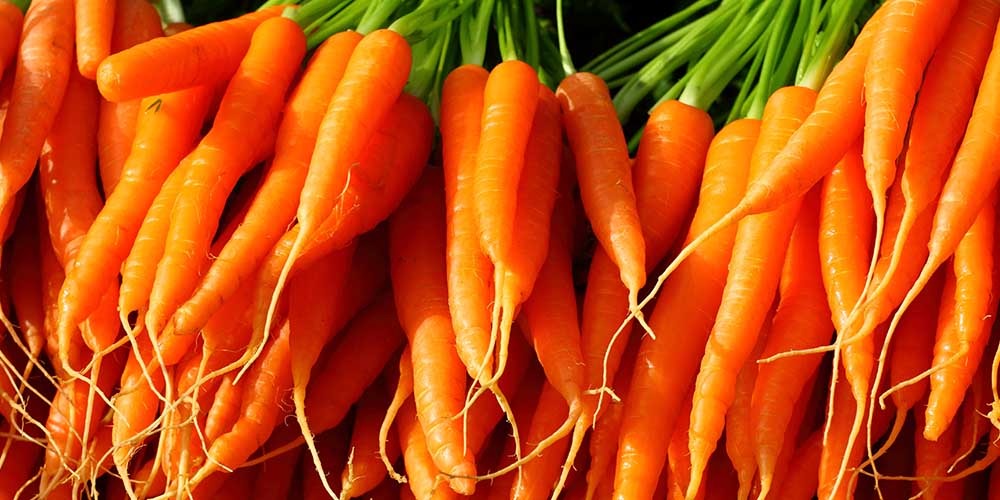With the arrival of winter, the number of foods that a person considers useful for maintaining high immunity is rapidly decreasing, and vitamins and dietary supplements appear in the diets.
But it would be wrong to think that in winter we do not have enough nutrients from readily available products. Some of the seasonal fruits, vegetables and nuts can be consumed every day and as a result support the body during the cold season.
1. Carrot
Carrots have been undeservedly forgotten in the diet and are inferior in popularity to foreign “immunostimulants” like oranges and ginger. Meanwhile, for immunity, this is one of the most important products – adults can eat 3-4 root vegetables a day. Carrots should only be eaten limited to children due to possible allergic reactions. Like many orange vegetables, carrots contain beta-carotene, the plant form of vitamin A, retinol. Vitamin A helps to improve visual acuity, skin condition and serves to prevent depression. When you eat carrots, the oral cavity is cleared of microbes, toxins are removed from the body, cholesterol and sugar levels are reduced. For better assimilation, carrots are best consumed in different forms – with fat (Korean carrot), in the form of fresh and boiled.
2. Cabbage
Cabbage is another cheap seasonal product that can be consumed in many different forms, but this is about fermentation. Cabbage can be fermented not only according to grandmother’s recipe, but also according to its foreign counterparts (for example, make Korean kimchi from Peking cabbage). Such a fermented product is a natural probiotic that has a beneficial effect on the intestinal microflora, which means it increases the immune response. It is in the intestines that many vitamins are synthesized, and modern research proves the benefits of probiotics to stimulate its work. The main thing in preparing fermented foods is to add less sugar and salt. Kimchi, on the other hand, is made with garlic, ginger and pepper, which makes the perfect combination of antioxidants and vitamin C, making it ideal for flu season.
3. Walnut
Even the shape of a walnut, as it were, suggests the improvement of the work of which organ it contributes. Walnuts contain omega-3, 6 and 9 fatty acids, which are vital for our brain to function properly! Fatty acids improve memory and have a sedative effect, helping to reduce stress and tension. Due to the large amount of vitamins and microelements, even a handful of nuts has a great nutritional value, and the protein of a walnut with the help of the lysine enzyme is more easily absorbed than animal. Walnuts should be eaten to restore the body after an illness, because the iron contained in them will help fight anemia, zinc and iodine – support the thyroid gland, potassium and magnesium – strengthen blood vessels.
4. Rosemary
If we talk about stimulating the immune system, we should definitely mention useful spices, for example, rosemary, which can be consumed in dried form in winter. Rosemary is rich in antioxidants that play an important role in neutralizing free radicals. This evergreen also contains anti-inflammatory compounds that help to strengthen the immune system and improve blood circulation. In Europe, rosemary has long been used to treat indigestion, and in Germany it is even approved by the medical commission for this purpose, although there is still little scientific evidence to support this effect. Rosemary is also beneficial due to its main component, carnosic acid, which helps fight free radical damage to the brain and improves retinal health. There is researchshowing that rosemary extract slows down the course of leukemia and some cancers.
5. Sunflower seeds
Sunflower seeds will be a wonderful addition not only to cold winter evenings (as a pastime), but also to a weakened immune system. These seeds have the perfect combination of vitamins A, D, E, group B and fats. Most of these vitamins are fat-soluble, but unlike the same carrots, there is no need to add fat to the seeds. The greatest wealth of seeds is vitamin E (one handful provides half the daily dose). Vitamin E is an antioxidant that is responsible for the health of the skin, oral mucosa and fights free radicals. Sunflower seeds contain the amino acid arginine, which protects against vein thrombosis, and phytosterols, which have the ability to absorb cholesterol, reducing its amount in the body. They are eaten as a prophylaxis for atherosclerosis, heart attacks and strokes.







